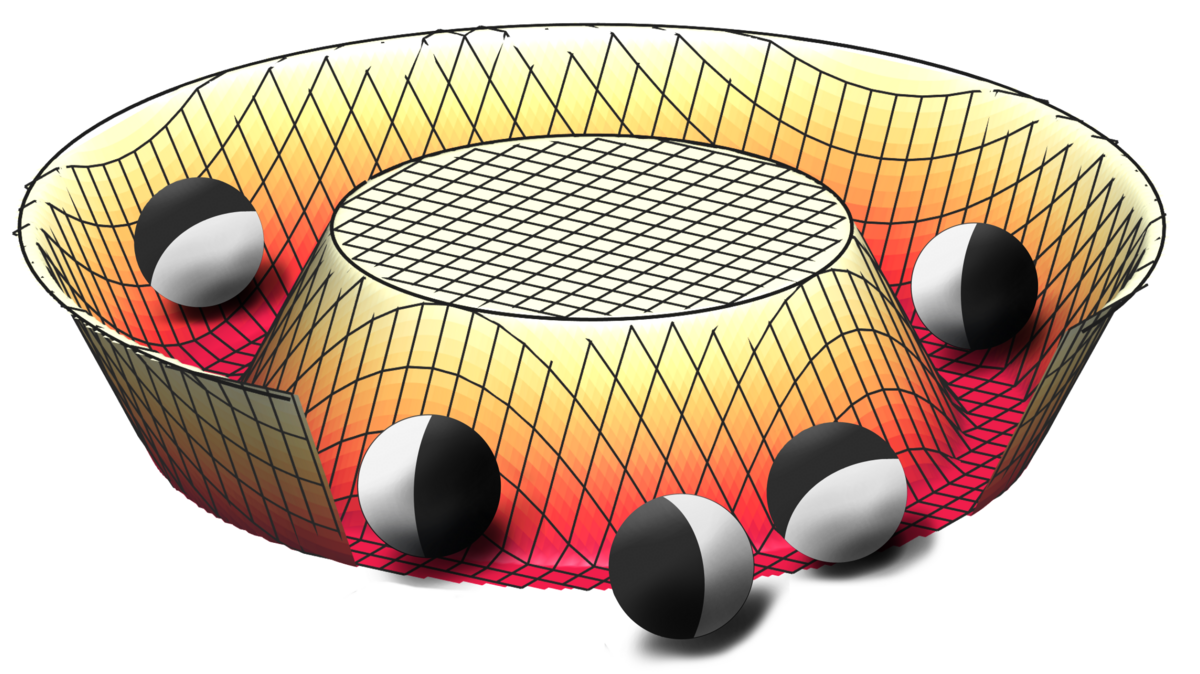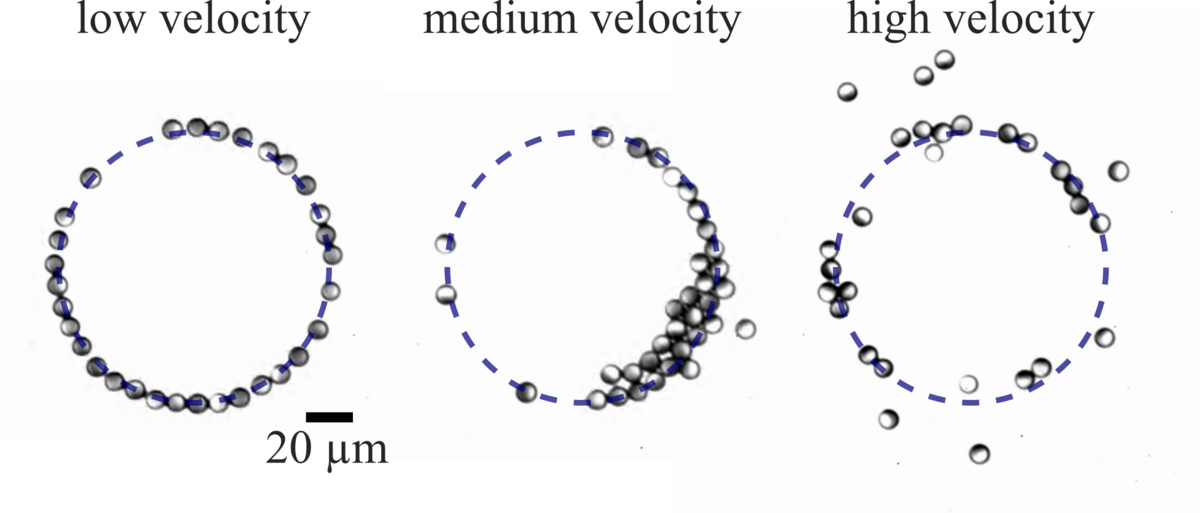
Clogging of soft channels by self-propelled microparticles
Self-propelled microparticles are known to form clusters by blocking each other in a phenomenon called motility-induced phase separation (MIPS). Understanding how this behavior leads to clogging in thin channels can provide valuable insights into the nature of MIPS and may help in the design of microfluidic devices to promote or suppress clogging.
Active Brownian particles (APs), e.g. microparticles that self-propel by converting energy into directed motion, exhibit different dynamics when confined compared to their behavior in unconfined systems. This study shows that the interaction between confinement and propulsion speed leads to distinct clustering behaviors. The findings indicate that, depending on the propulsion velocity and the softness of the confinement, APs transition from a homogeneous distribution to a clustered phase and back to a homogeneous state. Such re-entrant behavior is specific to soft confinements and does not occur in unconfined 2D systems where clustering persists above a certain velocity threshold.

In our experiments, carbon-coated silica-based Janus colloids were used as Active Brownian particles. These particles self-propel when illuminated by laser light. The particles were confined inside an annulus shaped channel formed by concentric, soft repulsive barriers. The latter have been created using a laser light gradient.
At low velocities, the particles maintain a single-file arrangement, but as the velocity increases, they form dynamic, multi-layered clusters before dispersing again at higher velocities. The study's findings are supported by numerical simulations that align closely with the experimental data. Overall, this study highlights how soft boundaries influence the behavior of active particles, providing new insights into their dynamics and potential applications.
| Motility-induced clustering of active particles under soft confinement |
T. Knippenberg, A. Jayaram, T. Speck & C. Bechinger Phys. Rev. Lett. (accepted) |
